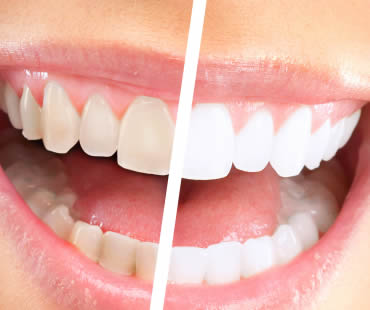Nobody is happy with yellow or brown teeth. Ugly stains from smoking or consuming foods and drinks prone to discoloring your teeth can make you a good candidate for teeth whitening. There are many techniques available to restore your bright smile. The main two categories of teeth whitening are either at-home kits or professional treatment in a dental office. Let’s learn about these to see which you’d like to use to brighten your smile.
At-home teeth whitening
There are a variety of products you can try yourself to whiten your teeth. These treatments usually take a few weeks of use before your teeth are noticeably whiter. Also remember that most of these products cannot achieve as high of a level of whiteness as those performed professionally.
- Kits – whitening kits contain a tooth mold and gel to place inside the mold. You wear the filled mold for about 30 minutes for 2-3 weeks.
- Strips – thin whitening strips are coated with peroxide gel, and then you apply the strips directly to your teeth for 30 minutes for 14 days. Results become evident in a few days and last about four months.
- Toothpaste – brushing with whitening toothpaste must be done consistently and you must be patient because reaching the desired outcome usually takes a couple of months.
Professional teeth whitening
Treatments done by a dentist are the fastest and most effective way to regain your pearly whites.
- Laser whitening – the dentist coats your teeth with a hydrogen peroxide solution and then shines a laser light on them. This oxidizes the stains and gives them a whiter appearance.
- Porcelain veneers – if your teeth are severely stained and other whitening techniques haven’t done the trick, your dentist may recommend porcelain veneers. These shells permanently cover your teeth and provide a beautiful smile.
Teeth Whitening dentist in Weymouth
















